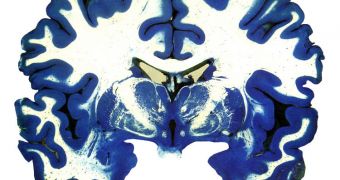People who are capable of remembering most of the things that happened to them throughout their lives in detail may be able to do so thanks to the fact that certain regions of their brains are significantly more developed than normal.
According to a team of scientists, these individuals are able to recall so many data from their past because certain areas of the brains are larger and contain more neurons than their peers'. The announcement was made yesterday, November 13, Society for Neuroscience's annual meeting.
What is even more interesting is that the new study indicates a potential link in brain architecture between remembering everything in detail and obsessive-compulsive disorder (OCD). One of the neural areas that enables perfect memory was also proven to be involved in the mental disorder.
One of the things that sets this study apart from others is that it looks at people with remarkable memories, rather than study individuals who have poor memories. The latter has been the trend since these fields of research were first developed.
“Looking at memory from a deficit gave us a lot of insight into memory. Looking at memory from a superior perspective gives us a new tool. It may just broaden our knowledge and ability to know what’s going on,” University of California in Irvine (UCI) expert and study coauthor Aurora LePort explained.
Studies discovered that the left temporoparietal junction and the left posterior insula were a lot larger in people with supermemories than in regular folks. Additionally, they also displayed a larger-than-normal lentiform nucleus, a structure of the brain previously connected with OCD.
“The ability to organize their memories by dates seems to relieve anxiety,” LePort says of the potential reasons why this type of memory may have developed in OCD-prone individuals. The researcher admits that the UCI team cannot yet explain how people got to have such good memories.
“Right now, we can see the brain areas that are coming out and speculate about what’s going on,” she explains. It could be, for example, that these people can encode and store the data more efficiently, or that they display a nearly-perfect retrieval mechanism. At this point, these are only suggestions.
One interesting aspect the new work hints at is that the trait may be hereditary. Participants in the new investigation said that they are not the only ones in their families capable of such extraordinary feats of memory. This indicates that the ability may be passed down from parents to children, Science News reports.

 14 DAY TRIAL //
14 DAY TRIAL //